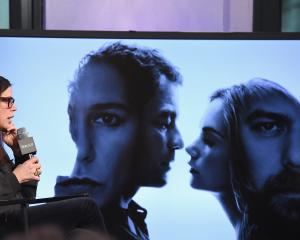1979 was an unpleasant year.
I will always remember it started on a Monday.
It was unusually cold, and there was a numbing pall of depression in the air.
Women in rags carrying starving babies tramped up the Northern Motorway past Pine Hill, desperate to leave a city lost in its own wretchedness and melancholy.
Ennui was everywhere.
Oh God, but it was awful.
And how were we to know then, ignorant as we were of the knowledge things would get unbelievably worse, that things would get unbelievably worse?
The height of international rock 'n' roll that year was the Music for Unicef Concert.
Held to promote the Year of the Child it was hosted by the Bee Gees and featured Donna Summer, Abba, Rod Stewart and Earth Wind and Fire.
As if in protest, Sid Vicious died of a heroin overdose in New York.
Then Margaret Thatcher was voted Prime Minister of the United Kingdom.
Then the Soviet Union invaded Afghanistan.
I can't remember what I was doing on November 4, 1979.
Dreading Christmas, probably, and writing angry letters to the newspaper complaining of corruption in the city council and the lax morals of young people.
But in Tehran, six American diplomats were fleeing their embassy, evading revolutionary guards and trying to hide from Islamist students and militants who were not their biggest fans.
They were successful in their flight, ending up being sheltered by various foreign nationals and escaping by pretending to be part of a Hollywood film crew scouting for locations for a science fiction movie.
Their story last year formed the basis of a film starring Ben Affleck, known as Argo.
We should not dwell on Argo, of course, because, as I'm sure you are aware, it falsely claimed the American refugees were turned away by the New Zealand embassy. Scandalous.
But we can dwell on the true story, because it comes to us on August 7 in Banged up Abroad: The Real Argo, on National Geographic.
The Banged up Abroad series has been broadcast here. It has in the past mostly featured the stories of mainly middle-class kids getting caught with saleable quantities of hard drugs in foreign airports, and ending up in vile foreign jails.
The Real Argo, though, features first-hand interviews with CIA officer Tony Mendez, who helped mastermind the escape, and two of the diplomats involved.
Argo has been criticised for giving the impression that the CIA managed the rescue almost single-handedly.
The Real Argo concentrates mostly on the experiences of the three interviewed, though the help of the Canadians is credited briefly.
I didn't hear New Zealand mentioned.
The Real Argo is, at least, a first-hand account of what can only be described as a cunning plan.
- Charles Loughrey





